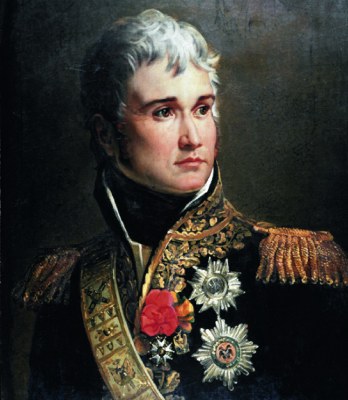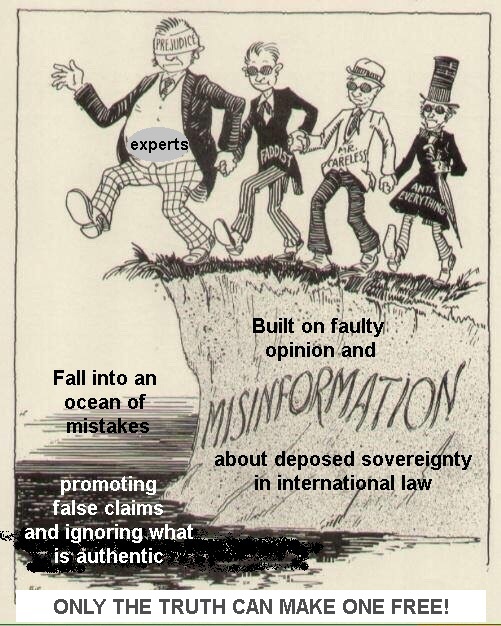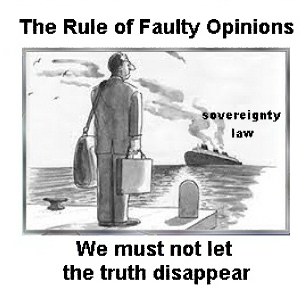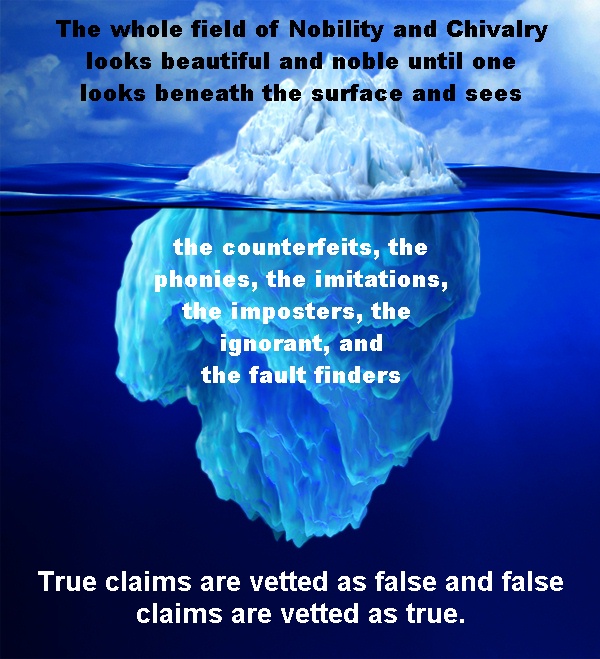
PROBLEMS AND SOLUTIONS: The Future of Nobility and Chivalry
The following is critical to understand if the field of nobility and royalty is ever to get a handle on its problems.
First of all, the problem as expressed by the most prominent scholar in the field, Dr. Stephen P. Kerr:
The whole field of nobility and royalty is in disarray and confusion. It is rife with falsehoods, misguided experts, phony princes, and counterfeit chivalric orders. Besides the numerous scams and charlatans that exist, there is a widespread misunderstanding of the international and natural laws that govern dynastic rights. This is a field that is truly divided. This sad state of affairs need not continue. If international law is honored, revered and respected, then everything can be set in its proper order. The grand key to this needed unity is the rule of the just, time-honored laws that already exist.
Unlike some fleeting, man-made laws that change over time, there are universal, intrinsic, and indispensable laws that transcend mankind and are immutable. This is natural law. If sufficiently understood, this higher law is more than adequate to address the major issues and controversies in the study of nobility, royalty, and non-territorial sovereignty. The ultimate result of the rule of law is the triumph of justice, which can unite most people as it is one of the great universal values and inner longings and desires of mankind. (The Entitlement to Rule: Legal, Non-Territorial Sovereignty in International Law, Foreword at http://www.the-entitlement-to-rule.com/id18.htm)
Few people know that the validity of all titles and orders centers around the principle of sovereignty. In other words, there, absolutely, must be a true and legitimate fons honorum (the legal right to honor) or nothing is legitimate, true or genuine on a public level. No one questions regnant rights or the royal prerogative of a sovereign on his throne to be a valid fountain of public honors. But just as legal as a reigning king or sovereign prince, the legitimate head of a deposed royal house also has the sovereign right in international law to award public international honors that are just as valid as those of a reigning monarch.
What gives him or her this power is the law as it relates to deposed royal houses. In other words, the law, the law on deposed sovereignty, is the grand master key to legitimacy.
It is not generally known that more than any other factor, it is the law that decides, who is royal, or legitimate, and who is not. “. . . The Rights of Princes to their thrones are . . . Legal Rights . . . .” (“An Inquiry into the Nature and Obligation of Legal Rights,” A Collection of State Tracts, publish’d during the Reign of King William III, vol. 2, 1705, p. 394) “. . . Sovereignty [which is the key to regal entitlements] is . . . merely [a] legal conception . . .” not primarily a hereditary one. (Neil MacCormick, Questioning Sovereignty: Law, State, and Nation in the European Commonwealth, 1999, p. 127) It is international law, not heredity or some other questionable factor, that determines what is legitimate and what is a sham or counterfeit. International prescriptive law is the law that “. . . justifies the power of [reigning] monarchs [as well as] . . . the claims . . . of dethroned monarchs. . . .” (Norberto Bobbio, Democracy and Dictatorship: The Nature and Limits of State Power, 1989, p. 85). This understanding is crucial to an understanding of nobility and royalty. But few people, not even many of the so-called experts have a clear understanding of this.
The main misconception that is at the root of all the others, the grand key, is a failure to recognize and comprehend international sovereignty law as it applies to illegally deposed royal houses.
Since the early years of the twentieth century, much of the knowledge of international law concerning deposed sovereignty has relatively disappeared. It was no longer considered significant as we do not live in an age where most nations were monarchies. As a result of this important loss of understanding and knowledge, the field of nobility and chivalry has become a sand dune society, drifting without an anchor or foundation to hold it together. Being without a unifying principle, almost “anything goes.”
The result: the following “dirty dozen” have completely taken over the field for both individuals and nobiliary organization that vet noble and chivalric claims:

(1) Permitting biases to reign: The rule of opinions instead of the rule of truth is a sure fire way to miserably fail.
(2) Allowing conflicts of interest: to dominate decision making.
(3) Giving unwarranted credibility to the findings of a court: such have proven to be highly unreliable. (See “Why Court Findings are Unreliable and Invalid Sources for Determining the Authenticity of Deposed Claims” in chapter 6 of volume 2 in the book The Entitlement to Rule: Legal, Non-territorial Sovereignty in International Law at http://www.the-entitlement-to-rule.com
(4) Relying on experts: who are just as ignorant of the laws as oneself.
(5) Depending on the recognition of others: which can be faulty and therefore lead one astray. The point is, one must do one’s own homework and discover the truth for oneself.
(6) Counting exclusively on heredity: when a whole kingdom or principality may be obtained by other legal means shows it is law, not heredity that governs. That is, great honors can be obtained by one “. . . who has purchased it, or received it in exchange, or acquired it by any title whatever.” (Emerich de Vattel, The Law of Nations, Book III, chapter 13, no. 198) (emphasis added)
(7) Banking on ancient genealogies: an inexact flawed science opens the door to deceit and deception.
(8) Trusting instead of questioning history: because facts are hard to come by historians make guesses.
(9) Blindly accepting traditions: some are built on make-believe, or false assertions, instead of dependable facts and objective reality.
(10) Attempting to find the truth by majority vote: voting does not determine reality – a majority cannot make what is right, wrong, or what is false, true. Truth must be discovered by objective solid facts.
(11) Lack of due diligence: without a proper standard of care, the truth can be obscured, distorted or entirely missed.
(12) Violating a fundamental human right: Giving a claimant his right to a reasonable defense against the reasons proposed against assertion creates the important potential that a case will have a fair and balanced hearing — that all facts will be disclosed and misunderstandings corrected. Otherwise, the truth, the most precious thing in life, is blocked from full consideration. What is left is often half-truth, which is a whole lie.
Since the “dirty dozen” are like the noxious weeds that afflict us. They need to be pulled out by the root so the plants that bear good fruit can flourish, the following are the same “dirty dozen” written as positive rules:
(1) Open Mindedness – an open door to truth, the most precious thing on earth.
(2) Preventing individuals with conflicts of interest from participating in all cases preserves and protects the critical element of objectivity.
(3) Court decisions do not settle any nobility case as definitive.
(4) Noting expert recommendations and endorsements, but not sole relying on their opinions. One must become knowledgeable for oneself to be a defender of what is really true.
(5) Likewise, recognitions are not considered conclusive and final.
(6) Heredity is only one way sovereign ownership can be transferred. Vattel declared that such can be “acquired . . . by any title whatever.” (See #6 above for reference)
(7) Ancient genealogies are always considered questionable and unreliable until positively proven accurate.
(8) History, especially ancient history, should never be the final word on any claim.
(9) Traditions are not settled facts, but must be checked out for accuracy to ensure they are based on reliable facts.
(10) Voting never establishes validity or legitimacy – only careful intelligent research can do this.
(11) Due diligence is an absolute before any decision can be made.
(12) A final determination should never be rendered without always allowing a claimant to respond to a committee’s or one’s findings to ensure that no misconceptions or misunderstandings dominate. Having an effective check and balance system is required for untarnished truth and justice to prevail. Otherwise, it is not only unfair, but it promotes the “dirty dozen” to operate without restraint.

To ignore the above flaws and important rules have created a very dismal situation wherein misconceptions reign unchallenged. Without the law, the field has become lawless. The point is:
Misinformation [the rule of opinions and misconceptions over of the rule of law] is the enemy of truth. It always has been and always will.
False ideas have prospered, and because of this loss, and the fact that “the uninformed are easily, misinformed,” we have far too many counterfeit royals and illegitimate orders of chivalry masquerading as authentic — more than at any other time in history.
In other words, if anything (popularity, pride, status or reputation) takes precedence over truth, what is real, genuine and true will be compromised. The highest commitment, above all else, must be to “the truth, the whole truth and nothing but the truth” if we are to lay the ground work required for a decent, rather than dismal future.
A field out of harmony with truth is a field that has been corrupted. Many counterfeit claims have been and still are being supported, and authentic and true claims have been judged as phony and false. This vividly demonstrates how bad things have become.
Other than the “dirty dozen” specified above, the general lack of knowledge on non-territorial, or deposed, sovereignty is responsible, more than any other known factor, for the serious mistakes being made in the field today. It, therefore, is the most significant and troubling problem as well as the solution, because something can be done about it.
This is, again, why we promote the two volume book, The Entitlement to Rule: Legal, Non-territorial Sovereignty in International Law. This book was designed to unveil the truth and give the field a chance to make a turn around.
The truth is the only thing that is certain and rock solid. Truth, whether popular or not, is one of the greatest treasures of life.
Opinions, on the other hand, are not helpful, but have dragged the whole field down into fragmentary parts instead of producing the unity and oneness that is needed. In conclusion, rather than an opinion orientation which presently dominates the field, there needs to be a deep, heartfelt commitment to finding the true facts — to make decisions based on evidence shown to be sound and reliable.
THE SOLUTION and THE ANSWER:
Because it provides viable answers and solutions to the serious problems we face in the field of nobility and royalty, the author and editors of the book The Entitlement to Rule considered its contents to be so vital and important that they put it on the internet for free. They did not want something as great as this to be published and collect dust on a library shelf.
The whole field of nobility and chivalry needs a shot in the arm -- an influx of what can alter the future for the better. It is so obviously clear that only "the truth can make us free" from all the mistakes that are currently hurting the field and innocent unwary people who become victims of the ignorance that so pervasive and all inclusive. We encourage people to read, learn and study. (See the book at http://www.the-entitlement-to-rule.com and the article "DEPOSED SOVEREIGNTY AND ROYALTY: How to Preserve it and How it can be Lost")Pertainent Cartoons:


Missing the boat is unacceptable!

The problems in the field of nobility and chivalry are serious.